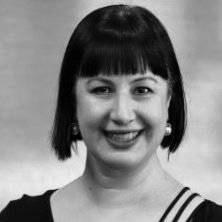Agile thinking wins today

As the workforce landscape changes and there is a growing requirement for new and different skills, it will no longer suffice for financial advice practices to motor along, business as usual.
If you’re connected to a large corporate at the moment, you’re probably familiar with the new buzzword around town – agile.
For some people, this means you have access to short-term temporary desks, and each morning begins with a merry sort of musical chairs routine. For those more deeply immersed in an agile workforce – it’s about working with new teams on a regular rotation basis to cover off sprints of new priority jobs. It’s a completely different way of thinking and is about responding to projects based on priority while, where possible, stripping out some of the mundane, business-as-usual stuff.
Agile itself is a term that, to me, means being able to change thinking and focus where necessary to get the job done.
It’s a very useful way to be. So how can you access it for your own business?
A report by the Foundation for Young Australians, The New Work Order, revealed 70 per cent of people entering the workforce are working in industries that will look very different or will be significantly affected by automation. That’s certainly not to say that these roles will be replaced, but it is to encourage a mindfulness that new skills, such as digital capabilities, especially for the younger generation are going to be more important.
A new and growing skill is that of the drone pilot. In the not-too-distant future drones are estimated to affect utilities - using drones to inspect powerlines, telephone towers and wind turbines; mining; fast food delivery; general delivery; any trade that needs inspections from heights; and photography. This is just one example of a new role that is set to grow exponentially.
For people who have experience in online gaming – drone piloting is a role that may suit their expertise. It is likely not to be what they were ‘training’ themselves for, but it’s certainly something that they can consider.
In fact, all the skills learned in different parts of a person’s life should work together to determine expertise and ability to undertake different, new roles.
Even in current roles, skills will need to change. Simply managing people will need to expand to managing people located remotely – potentially quite a different skill.
Agile is all about adapting for future tasks, roles and building on training and experience to solve all manner of problems.
In fact, problem-solving is the skill most valued by employers, and a workforce that can think logically and laterally will be top of mind. Employees who will set themselves apart will be skilled at solving current problems, but importantly can identify and potentially solve foreseeable issues.
According to The New Work Order, more than half of Australian workers will need to be able to use, configure or build digital systems in the next 2-3 years.
The survey also showed that in the last 25 years the rise of skilled workers rose from 47 per cent of the workforce to 66 per cent of the workforce.
In Australia, technology has accelerated the division of labour and enabled companies to divide work into smaller tasks that can be sourced from a global labour pool. This has seen young people in Australia become more educated than the OECD average.
Further, barriers to entrepreneurship are falling and technology and globalisation are making it easier and cheaper to run start-ups.
The increase in flexibility and working remotely is allowing higher participation, and ultimately higher productivity.
Running businesses from non-bricks and mortar sites can mean an increase in creativity and new business ideas. We need to think about these differences and think in an agile way.
Financial services is likely to face disruptors and this is why we need to keep thinking differently. If we want to keep servicing the clients we have, we need to keep them top of mind – and make sure we are giving them what they want and deliver on it quickly and efficiently.
Julia Newbould, Stella Network Leader, BT Financial Group
Subscribe to 
Never miss the stories that impact the industry.






